Highlights
|
What in the universe can squeeze a star like a tube of toothpaste or flatten a star like a pancake? A black hole nearby, maybe.
The effects of black holes on stars are a fascinating area of astrophysics. Black holes are invisible because not even light can escape their gravity. Though, space telescopes can help detect black holes by observing the effects of black holes on their surroundings such as the motion of stars and gas in galaxies.
Credits: NASA
Just as in the video above, if a black hole is accreting matter, it will emit X-rays. A black hole devouring a star that wandered too close not only captivates the imaginations of scientists and stargazers alike but may help to understand more complex cosmic processes of the universe. Just as in 2003, for the first time, astronomers discovered that a supermassive black hole at the centre of the Perseus galaxy cluster was emitting sound waves.
NASA captured sound from a black hole, and it’s super eerie!
The misconception that there is no sound in space originates because most space is a ~vacuum, providing no way for sound waves to travel. A galaxy cluster has so much gas that we've picked up actual sound. Here it's amplified, and mixed with other data, to hear a black hole! pic.twitter.com/RobcZs7F9e
— NASA Exoplanets (@NASAExoplanets) August 21, 2022
Find it fascinating? So, do you also wonder which are the biggest black holes in the universe? How big they can be? Let us first understand what is a black hole.
What is a black hole?
Image: ESO
Each star's end is a black hole's beginning. Almost every galaxy has one.
A black hole is a region of space where a massive star has collapsed under its own gravitational pull to a point of infinite density, known as a singularity. The gravitational field surrounding this singularity is so intense that it creates an event horizon—an imaginary boundary beyond which nothing, including light, can escape.
The European Space Agency (ESA) explains that black holes "are formed when massive stars exhaust their nuclear fuel and collapse under their own gravitational pull. As matter is compressed into an incredibly dense point, called a singularity, a region of spacetime with a gravitational field so intense is formed."
Discovery of First Black Hole
The discovery of the first black hole is attributed to the work of various scientists, and it occurred over a period of time rather than being a single event. However, one of the key milestones in the understanding of black holes came in 1916 with the development of Albert Einstein's theory of general relativity.
Einstein's theory predicted the existence of black holes as objects with extremely strong gravitational forces, from which not even light could escape. However, it wasn't until the mid-20th century that the term ‘black hole’ was coined by physicist John Archibald Wheeler in the 1960s.
In terms of observational evidence, the first strong evidence for a black hole was discovered in the early 1970s. Astronomers studied a source of strong X-ray emissions known as Cygnus X-1, located in the constellation Cygnus. By observing the motion of a companion star orbiting an unseen object with a significant mass, they deduced the presence of a black hole.
However, Cygnus X-1 remained a subject of intense study since its discovery. It was in 1990 that Stephen Hawking and Kip Thorne, two of the leading black hole physicists in the world, after studying compelling evidence agreed that Cygnus X-1 was indeed a black hole.
Credits: NASA's Chandra X-ray Observatory Photo of Cygnus X-1
The discovery of Cygnus X-1 was a major breakthrough in astronomy. It showed that black holes were not just theoretical objects, but that they actually existed in the universe. Since then, astronomers have discovered many other black holes, and our understanding of these mysterious objects has grown significantly.
While we dive deeper into the world of black holes, it brings us to a question what if someone jumped into a black hole?
Would you dare to jump in a black hole? Probably not a good idea!
Spaghettification: A black hole would stretch an astronaut’s body into a thin ribbon, since the gravity pulling on their feet is so much stronger than on their head. Credit: ESO/M. Kornmesser
Tell Me More….
If you were to fall into a black hole, the part of your body closer to the black hole will feel an enormous gravitational pull than the part farther away from the black hole. Scientists call this phenomenon ‘spaghettification’. This effect will stretch you vertically and compress you horizontally like a noodle. As you get closer to the black hole, you will be stretched and ripped apart. And all of this would happen even before you reach the event horizon - the point of no return.
What happens inside a black hole? Astronomers do not actually know what goes on inside black holes. One of the most popular theories about what happens inside a black hole is that there is a singularity at the center. A singularity is a point of infinite density and gravity. Another theory is that black holes are gateways to other universes. This theory is based on the idea that the universe is not a single entity, but rather a collection of many different universes. When something falls into a black hole, it may be transported to another universe. But current theories may be wrong. As astronomers expand their understanding of physics about the universe's biggest mystery, we may someday know better what happens inside black holes.
How Do Black Holes Form?
Black holes form when stars collapse at the end of their lives. When a star runs out of nuclear fuel, it collapses under its own gravity. If the star is massive enough, the collapse will create a black hole. The collapse of the star's core is caused by the outward pressure of the star's hot, dense plasma being overcome by the inward pull of gravity.
The collapse of a star to form a black hole is a very violent event. The star's core collapses in on itself, and the outer layers of the star are blown off in a supernova explosion. The supernova explosion can be very bright, and it can be seen from billions of light-years away.
And how big is a black hole? They can be gigantic enough to fit a few millions Earths to billions Suns.
Stellar to Supermassive Black Holes, 20 to Billions Times Mass Than The Sun
Image: NASA
To put in perspective, we have shared a chart by NASA that explains “the relative masses of super-dense cosmic objects, ranging from white dwarfs to the supermassive black holes”.
As per NASA, “A white dwarf is what stars like the Sun become after they have exhausted their nuclear fuel. A typical white dwarf is half as massive as the Sun, yet only slightly bigger than Earth.” Second in the chart range, we have neutron stars which are created from the explosions of stars more than about 10 times the mass of the sun.
However, the remnants of the mass of a white dwarf star or a neutron star are not massive enough to collapse into black hole. Then how much mass of a dying star has to be for it be referred to a black hole?
Black holes are classified based on their mass, with three main categories: stellar black holes, intermediate-mass black holes, and supermassive black holes.
Stellar Black Holes: Formed from the remnants of massive stars that undergo gravitational collapse, stellar black holes typically have masses ranging from a few times that of the Sun to around 20 times the solar mass. They are the most commonly observed type of black hole.
Intermediate-Mass Black Holes: These black holes are hypothesized to have masses ranging from 100 to 100,000 times that of the Sun. Intermediate-mass black holes bridge the gap between stellar black holes and supermassive black holes, although their existence is yet to be definitively confirmed.
Supermassive Black Holes: These colossal entities reside at the centres of most galaxies, including our own Milky Way. They have masses millions to billions of times that of the Sun. Supermassive black holes play a crucial role in galaxy evolution and are the focus of extensive research.
Jeremy Schnittman, a theorist at NASA’s Goddard Space Flight Center in Greenbelt, Maryland described, “How do they get so big? When galaxies collide, their central black holes eventually may merge together too.”
Biggest Black Holes in the Universe
In the latest animation created by scientists at NASA's Goddard Space Flight Center and the European Southern Observatory, it shows supermassive black holes ranging in size from 100,000 to 66 billion times the mass of the Sun. The animation shows how the black holes warp the space-time around them, and how they affect the stars and gas that surround them. The animation was released on May 3, 2023, to mark World Space Week.
Credits: NASA
The black holes in the animation are located in a variety of galaxies, including the Milky Way, M87, and NGC 4261. The black holes in the animation are all active, meaning that they are accreting matter from their surroundings.
First up, we see a supermassive black hole, with a mass about 100,000 times that of the Sun, in the dwarf galaxy J1601+3113. However, it is much smaller than the supermassive black holes found in most galaxies.
Next in the animation, a supermassive black hole in the Circinus galaxy weighs more than 1 million Suns. Then there is a supermasive black hole weighing more than 2 million Suns sitting at the centre of M32, a dwarf galaxy in the Andromeda galaxy. The galaxy is 2.5 million light-years away from Earth. Now, as we go higher in the scale of mass of these behemoth black holes, things get more intense.
Say hello to one giant black hole sitting right in the heart of our Milky Way galaxy.
Sagittarius A* — Supermassive Black Hole In Centre Of Our Milky Way Galaxy
Sagittarius A* black hole. Image credit: Event Horizon Telescope Collaboration
Sagittarius A* (Sgr A*), a supermassive black hole at the centre of our Milky Way galaxy has a solar mass of approximately 4.3 million Suns. It sits just 26,000 lights away from Earth. As per NASA estimates, this behemoth woke around some 200 Earth years ago, or roughly around the start of the 19th century.
If that has caught you in awe, then you will want to know of the NGC 7727 galaxy that hosts two supermassive black holes. Located about 1,600 light-years apart, one weighs more than 150 million Suns and the other 6 million solar masses. And astronomers say the pair will merge within the next 250 million years.
The buck, oh sorry, black holes do not stop here. Next up, we have another giant in M87* galaxy.
Credits: ESO/Event Horizon Telescope
Another supermassive known black hole resides in the galaxy Messier 87 (M87). Located approximately 55 million light-years away, this supergiant black hole boasts a mass of about 6.5 billion times that of the Sun. Back in 1995 with Hubble observations, the M87 black hole was estimated to be around 2.4 billion solar masses. Astronomers describe its shadow so vast that “even a beam of light – traveling at 670 million mph (1 billion kph) – would take about two and a half days to cross it.”
Behold your breath for the enormous current record holder giant black hole in the universe TON618.
TON618 — Biggest Black Hole In Universe
Image: NASA
With a mass of 66 billion solar masses, TON618 is located about 18.2 billion light-years from Earth. The Schwarzschild radius of a black hole is the radius of the event horizon, the point of no return. The Schwarzschild radius of TON 618 is more than 40 times the distance from Neptune to the Sun. The distance from Neptune to the Sun is about 4.5 billion kilometers To compare, if TON 618 were located at the center of our solar system, the event horizon would extend beyond the orbit of Neptune.
Why Are Space Scientists So Interested In Black Holes?
Supermassive black holes are fascinating objects of study due to their significant impact on galactic evolution and their potential role in the cosmic ecosystem. By examining these colossal structures, scientists gain insights into various aspects of the universe, including:
Galaxy Formation and Evolution: Supermassive black holes are intricately tied to the formation and growth of galaxies. Their gravitational influence shapes the dynamics of galactic structures, driving the formation of stars and regulating the interstellar medium.
Cosmological History: Studying supermassive black holes at different cosmic epochs allows scientists to probe the conditions of the early universe and understand the processes that have shaped it over billions of years.
Fundamental Physics: The extreme conditions near a black hole's event horizon offer a unique testing ground for theories of gravity, the nature of space-time, and the behaviour of matter under extreme gravitational forces.
Dark Matter and Dark Energy: The relationship between supermassive black holes and the mysterious dark matter and dark energy that dominate the universe remains an active area of research. Understanding this connection could unravel some of the most profound mysteries of our cosmos.
Further In Space And Time...
Black holes, with their insatiable appetite for matter and their gravitational influence on cosmic scales, continue to intrigue and challenge our understanding of the universe. From stellar black holes to the enigmatic supermassive black holes that reside at the hearts of galaxies, these cosmic powerhouses offer us a glimpse into the profound depths of space and time.
Through ongoing research and technological advancements, we are unravelling the secrets of these cosmic giants, enriching our knowledge of the universe and the fundamental laws that govern it. Event Horizon Telescope (EHT) The EHT is a network of radio telescopes that are working together to image the event horizon of the supermassive black hole at the center of the Milky Way galaxy. It would allow us to see what happens to matter as it falls into a black hole.
As technology improves, we can expect to learn even more about these behemoth cosmic objects in the years to come. As we wrap up our fascinating exploration of black holes, we have one interesting question: What if the Sun turned into a black hole?
What if the Sun turned into a black hole?
Interestingly, the Sun would never turn into a black hole. Yes. As per NASA, the Sun is not massive enough to plunge into a behemoth black hole. However, even if it did, it will eventually become a white dwarf, which is a small, dense star that no longer produces energy through nuclear fusion.
Further, if the Sun turned into a black hole, the Earth and the rest of the solar system would continue to orbit the black hole in the same way that they orbit the Sun now. However, the Earth would be plunged into darkness and the temperature would drop dramatically, which would be disastrous for life on Earth.
Also Read: What is Space Junk (Debris) and why is it a global threat?
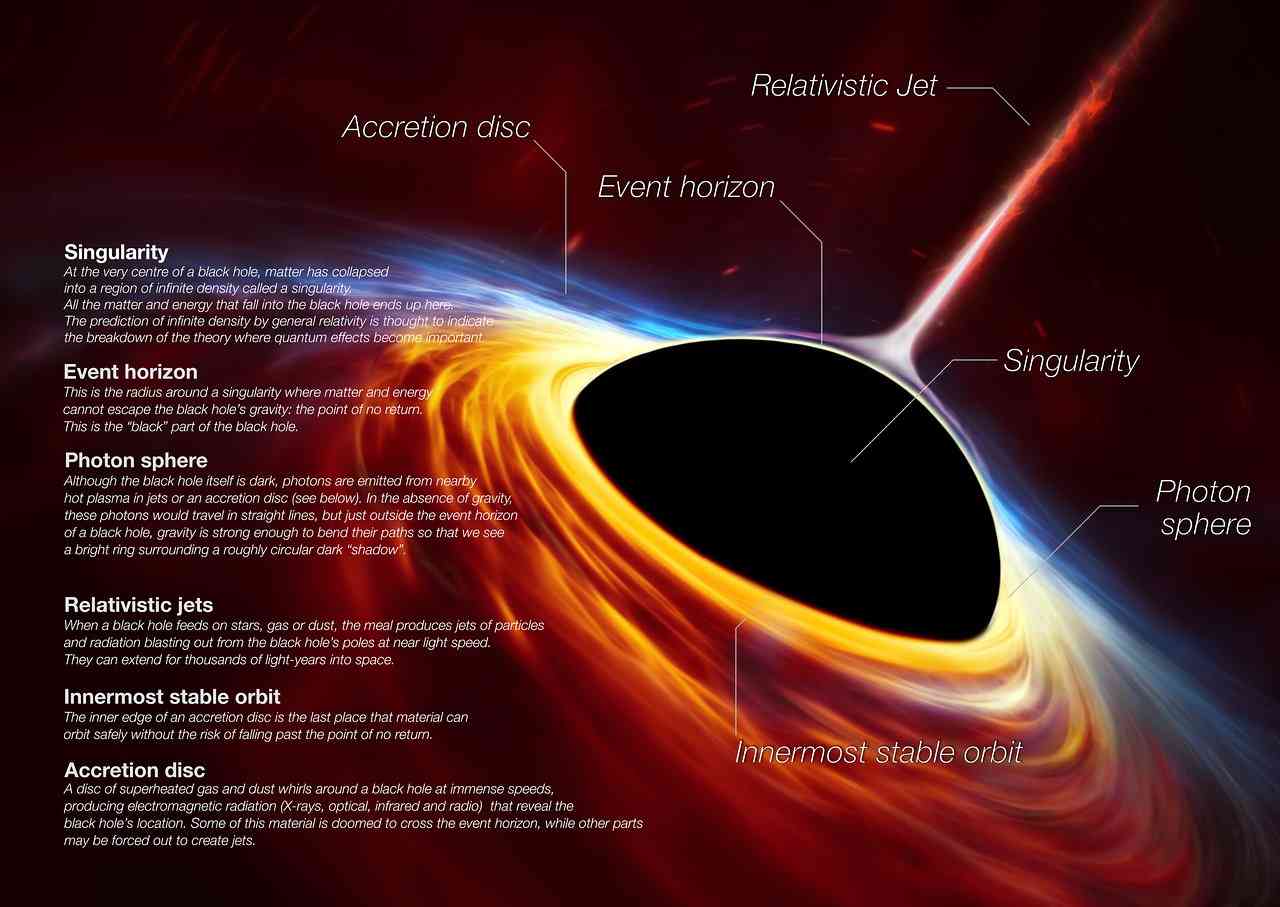
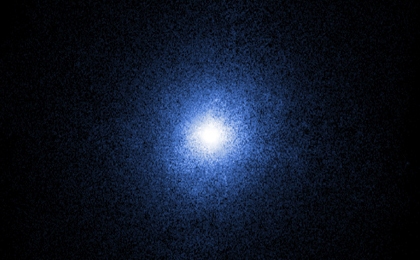
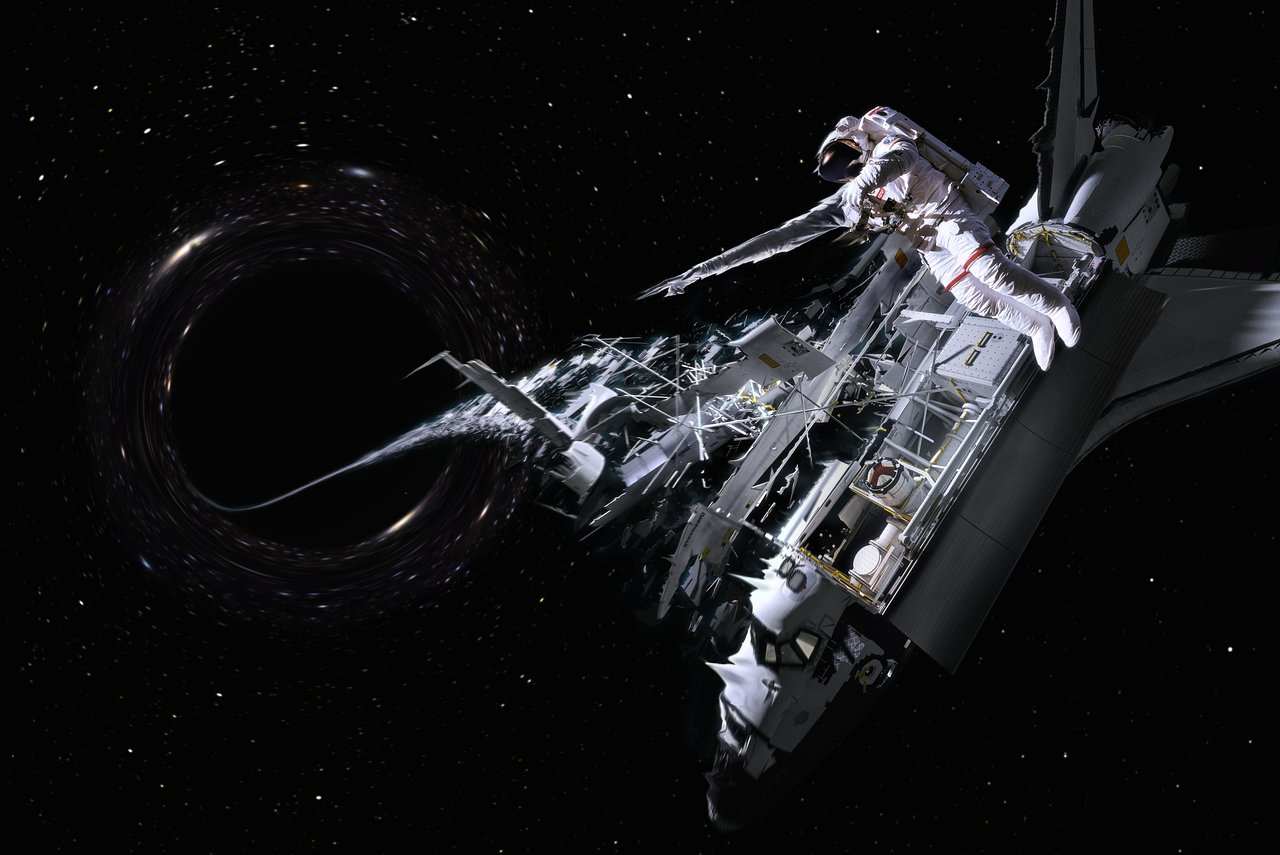
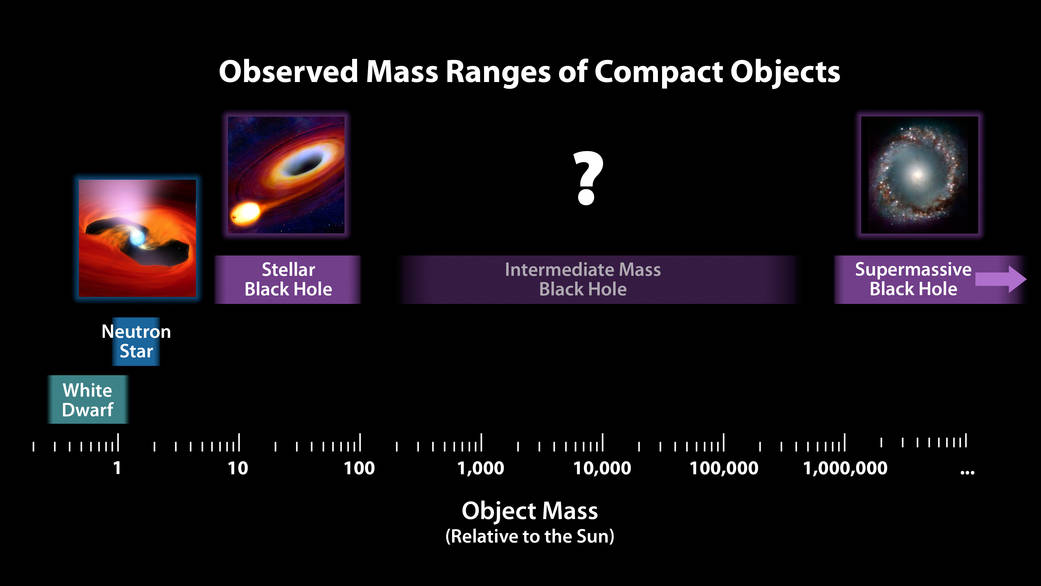
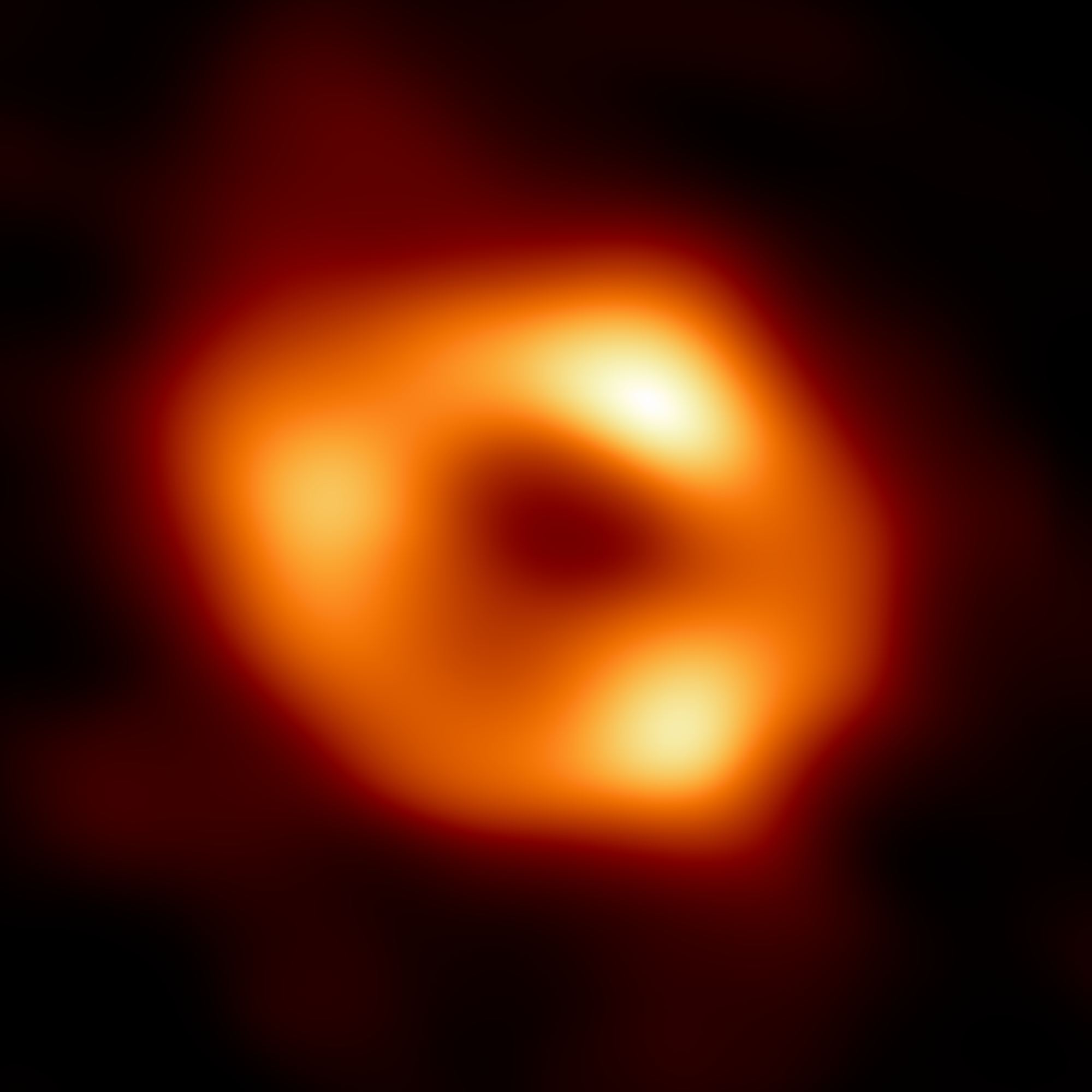
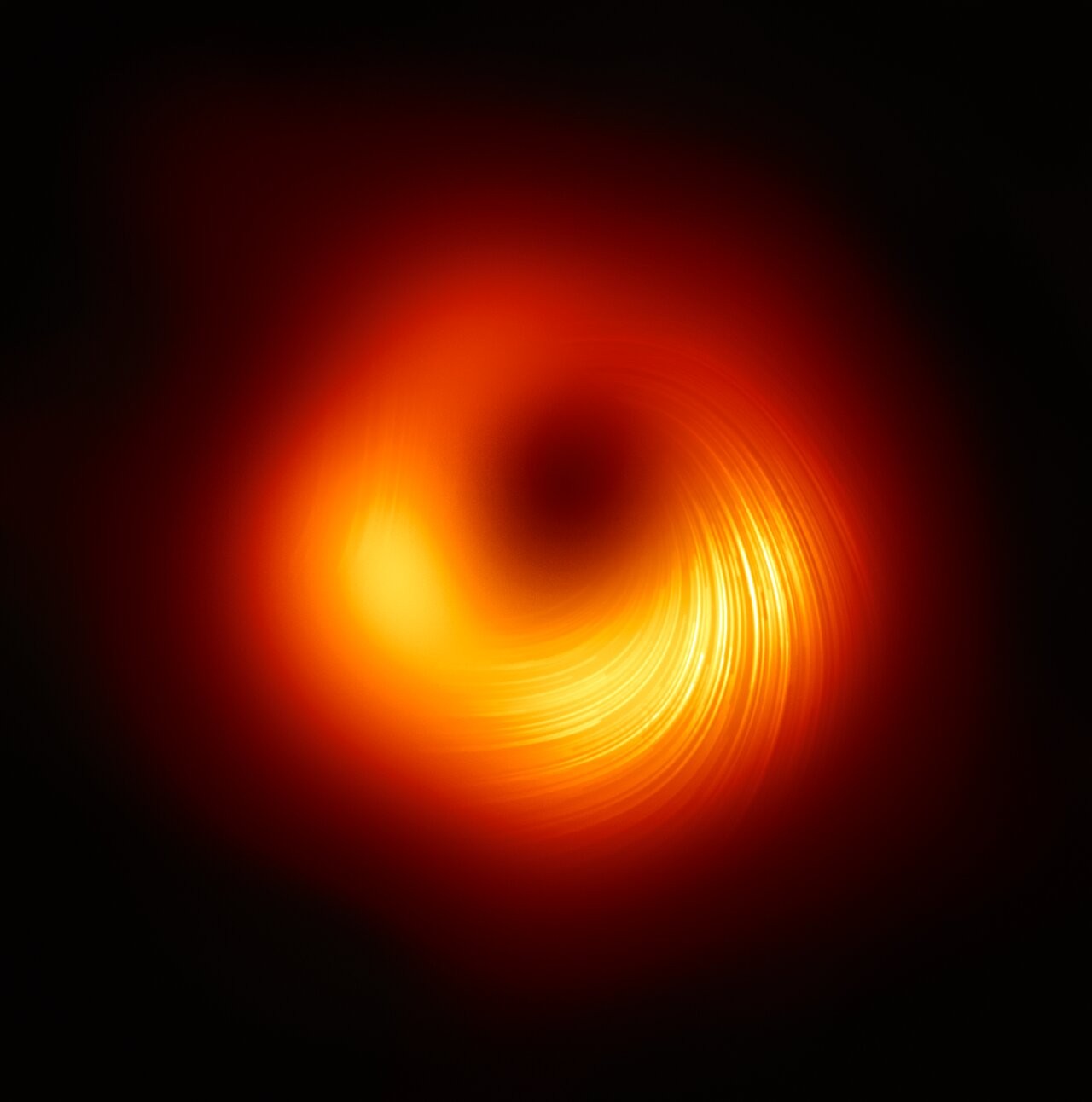 Credits: ESO/Event Horizon Telescope
Credits: ESO/Event Horizon Telescope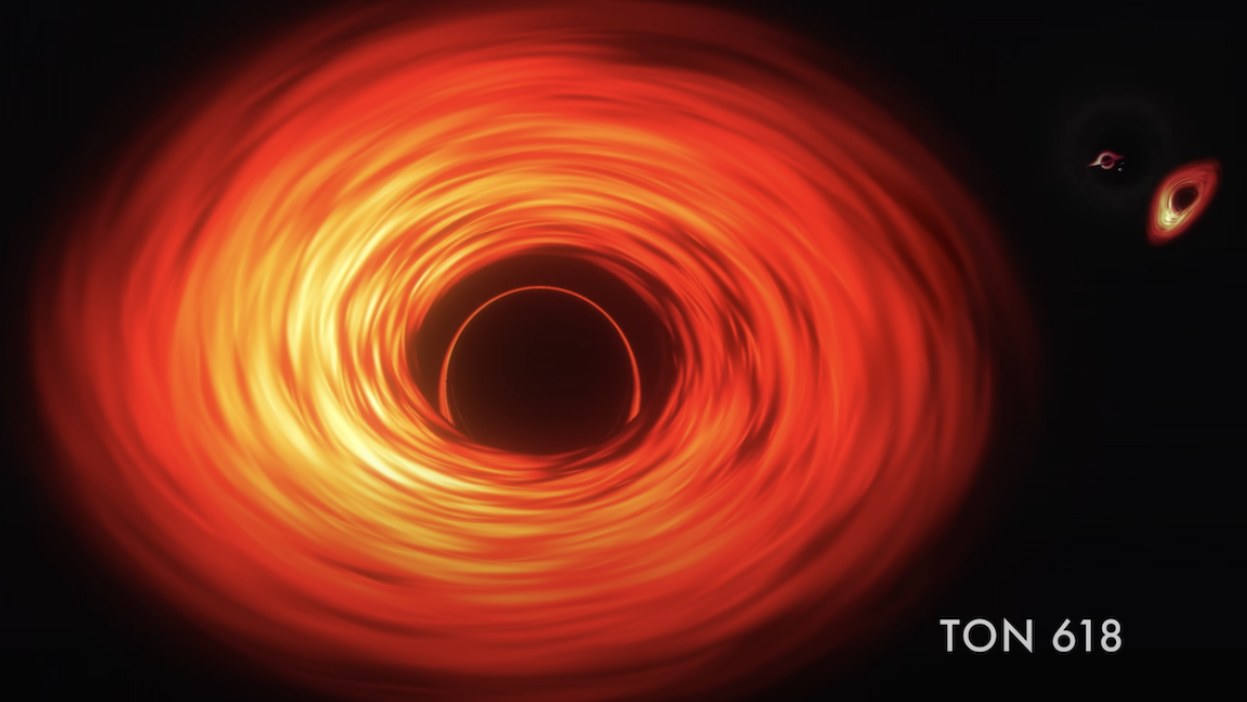
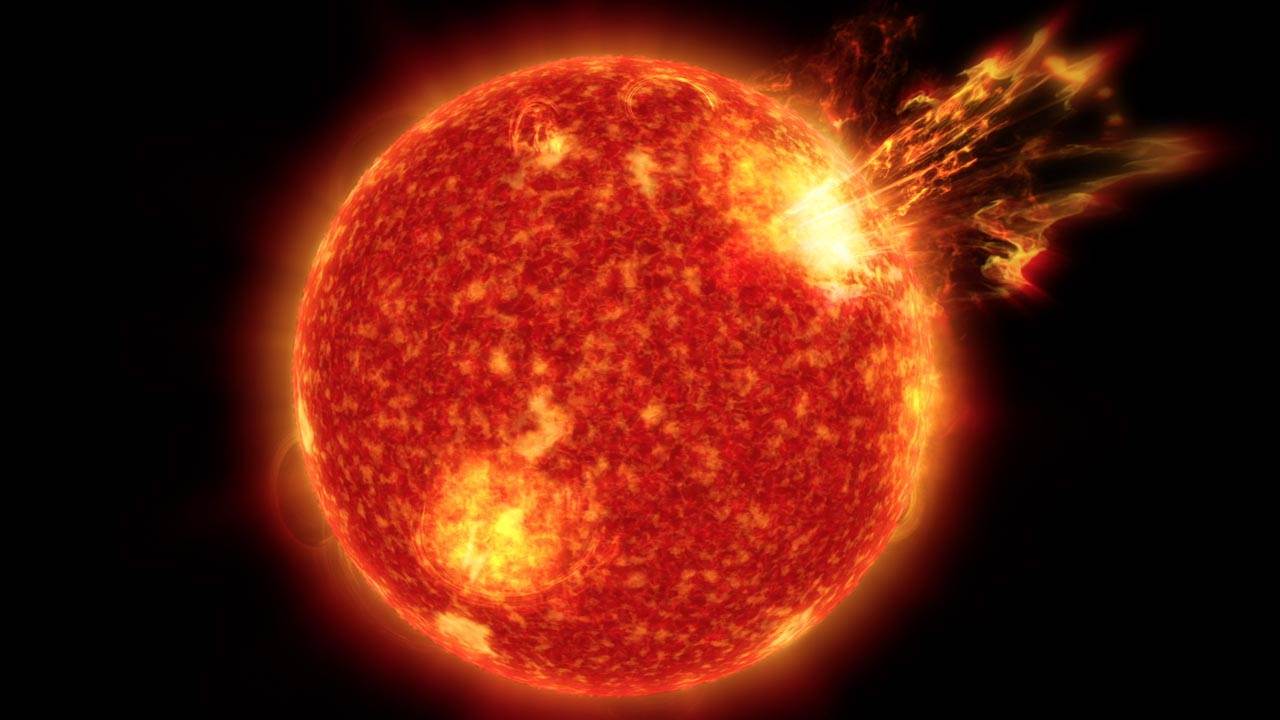
Comments
All Comments (0)
Join the conversation